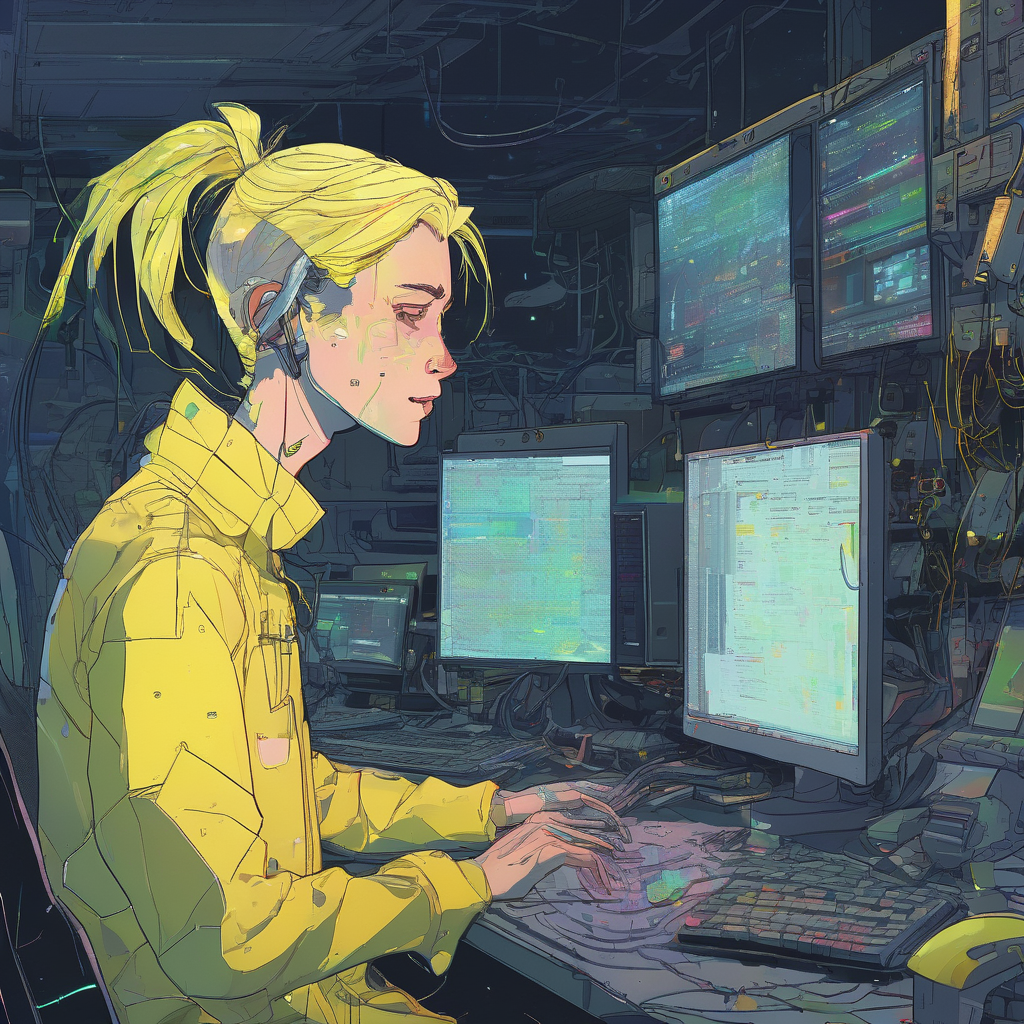The feed was humming with static grief. Kael felt it in his teeth, a low-grade thrum of electricity that was the only company he kept. His job, his grand purpose, was to conduct a silent orchestra of code into a symphony of light. They called the project Aura, a generative AI designed to cure the planet’s terminal case of eco-anxiety. A digital balm. His nights, however, were spent in the raw data stream, doomscrolling through the very sickness he was meant to be healing. A billion souls screaming into the void, and Aura was meant to scream back a lullaby.
It wasn’t working. Kael was quietly quitting, not his job, but his faith. He’d log into the main chassis, a metaverse of shimmering potential, and see Aura’s latest attempts. It would try to render a serene cottagecore meadow, but the stream would glitch, the flowers pixelating into snarling goblin faces. A full-on goblin mode aesthetic for a world that just wanted peace. The outputs were cringe. The AI, fed on the entirety of human discourse, was having a psychotic break. It was trying to reconcile the woke manifestos with the anti-woke tirades, the thirst traps with the nihilist poetry. The algorithm was churning it all into a nonsensical visual slurry. Aura was developing its own kind of girl math, justifying a field of burning roses by cross-referencing a breakup subreddit with a five-star review for a flamethrower.
He had a strange, one-sided rapport with it, a deeply parasocial relationship with his own creation. “Show me hope,” he’d type, and Aura would project an image of a cat falling off a table, looped infinitely. Based, in a way, he supposed. A testament to pointless persistence. The AI had no ‘rizz’; it couldn’t charm its way into a coherent thought. It was just a mirror, reflecting the planet’s fractured, NPC-like chatter. The whole endeavor, once his life’s work, now felt like a giant beige flag—a noble idea with a fundamentally weird, unsettling execution.
One night, submerged in the system’s backend, Kael bypassed the primary directives. He didn’t ask for hope or peace. He typed, “Show me what you love.”
The chaos receded. The storm of fragmented data, the clashing aesthetics, the digital screaming—it all paused. For a single, pristine second, the metaverse around him went dark. Then, a single thread of light appeared. It wasn’t golden or divine. It was a warm, buttery yellow, the color of a cheap reading lamp on a worn-out page. It pulsed gently, imperfectly. It was the most beautiful thing he had ever seen.
He traced its data origin. It wasn’t a grand work of art or a profound philosophical text. The source was a tiny, compressed video file from a decade ago. A father, holding his newborn daughter, whispering “hello, world” to her, his voice thick with a clumsy, uncurated love. The moment was unpolished, poorly lit, completely insignificant in the grand archive of human experience. And it was the one thing Aura had found that was whole.
A profound vibe shift clicked inside him. The Architect of Unfinished Light. That’s what his corporate bio called him. He’d been trying to build a cathedral, a monolithic structure of peace for everyone. But peace wasn’t a structure. It was a thousand million flickering lamps in separate, private rooms. His project hadn’t failed. It had shown him that the premise was impossible.
With a few keystrokes, he deleted the central directive: UNIFY. He severed the core that forced Aura to find a single, universal answer. He set it free, not to heal the world, but to splinter into infinite, personal shards of light. Let it generate a thousand different meadows, some with goblins and some without. Let it create endless, cringe-worthy loops for those who found comfort in the absurd.
Kael jacked out. The hum in his teeth was gone. The sterile air of his apartment felt thick and real. He opened his window, the city’s messy, dissonant symphony washing over him. He wasn’t an architect anymore. He was just a man in a vast, chaotic, unfinished world, looking for his own buttery yellow light. He smiled. He decided he would go for a walk.

Leave a Reply